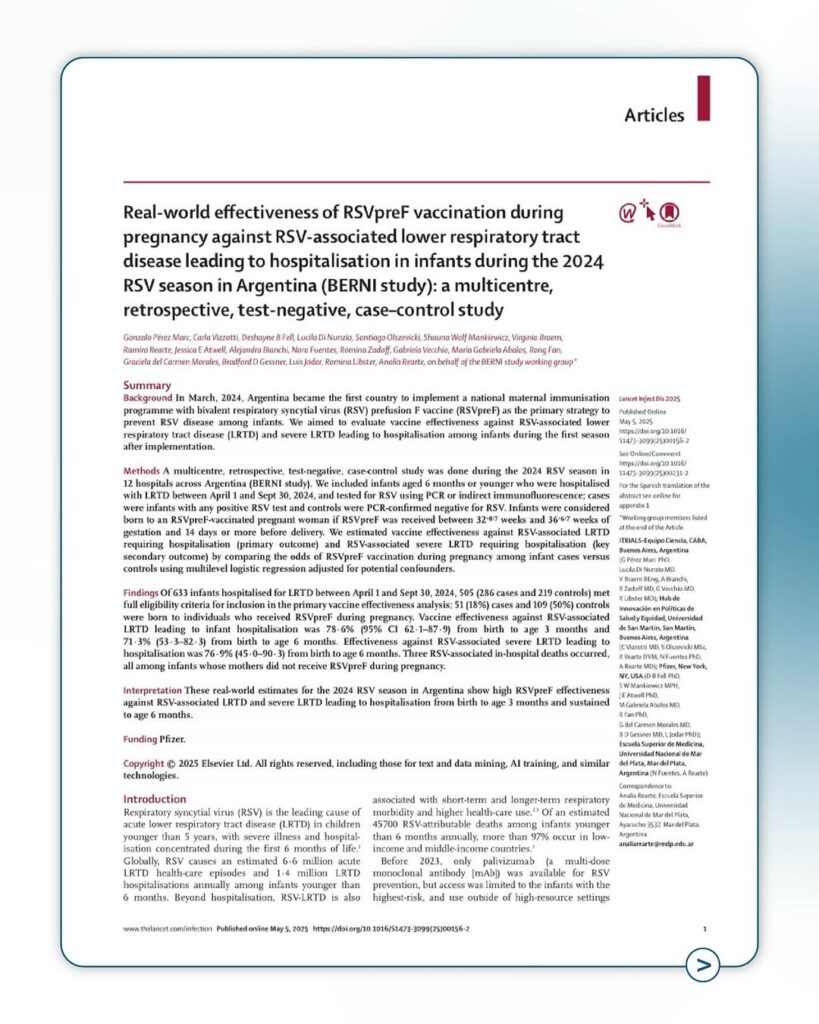In April 2025, the prestigious scientific journal The Lancet Infectious Diseases published the results of the BERNI study, which evaluated for the first time in the world the effectiveness of the maternal vaccine against respiratory syncytial virus (RSV) at the national level and under real-life conditions.

The study was led by Equipo Ciencia, the Research Hub of the National University of San Martín (UNSAM) and health professionals from more than 12 public and private institutions in six regions of the country. This collaborative work made it possible to evaluate the impact of the RSVpreF vaccine (Abrysvo®, Pfizer) on babies born to immunized mothers during the RSV season 2024, after its incorporation into the national calendar. In Argentina, coverage exceeded 60% (more than 140,000 pregnant women were vaccinated).
The study showed a 78.6% reduction in hospitalizations due to acute respiratory infections derived from RSV in infants up to 3 months of age and a 71.3% reduction up to 6 months of age. Infants born to vaccinated pregnant women had a lower frequency of severe illness, admission to intensive care, and duration of hospitalization. These findings support a possible clinical protective effect of maternal vaccination against RSV.
In addition, the strategy demonstrated a positive impact on improving coverage of other vaccines during pregnancy, such as influenza and acellular MMR.
This achievement positions Argentina as the first country in the world to generate solid and large-scale evidence on the impact of maternal immunization against RSV, one of the main causes of hospitalization for respiratory infections in infants.
The Argentine experience not only strengthens confidence in this preventive strategy, but also offers a replicable model for other countries, especially in middle- and low-income contexts.
Access the publication of the study results in The Lancet.

